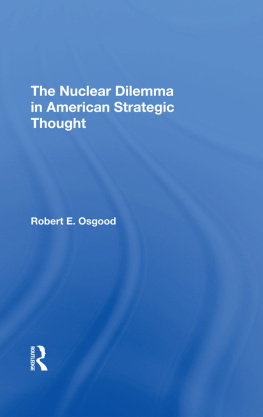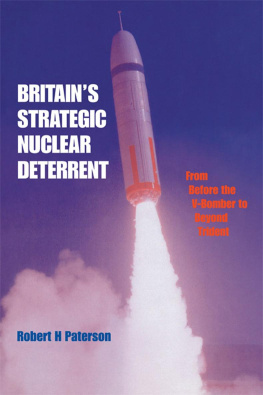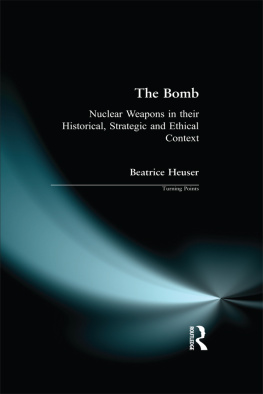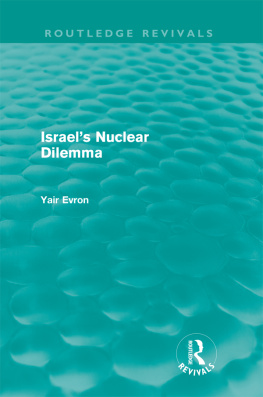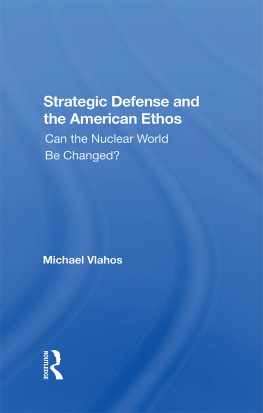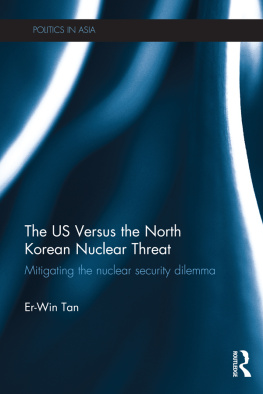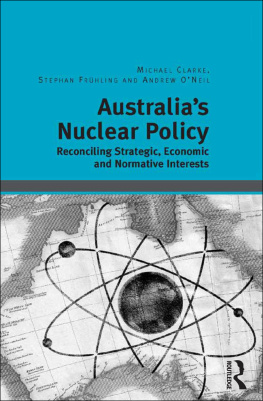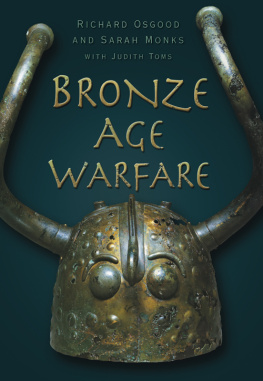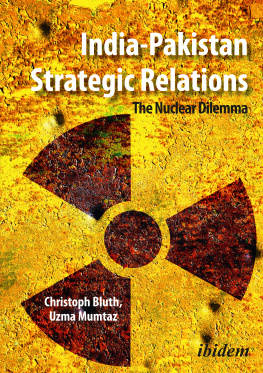The Nuclear Dilemma in American Strategic Thought
About the Book and Author
Since the end of World War II, the United States has faced moral and strategic issues in its management of force that are unique in the history of international politics. At the heart of these issues is the heavy reliance of the United States and its allies on the deterrent effect of nuclear weapons and the fact that their use would very likely lead to self-defeating destruction and ecological catastrophe. This dilemma affects every major military decision and strategic debate, and the history of U.S. strategic thought can be viewed as an attempt to cope by rejecting, abolishing, or mitigating the nuclear specter.
In this incisive review, Dr. Osgood explores the evolution of postwar strategic thought in the United States, examining the moral and practical implications of the nuclear dilemma in a masterly synthesis of all aspects of the nuclear deterrence debate. His discussion of the issues is both a personal essay by a participant in the debate and a major contribution to the development of strategic thought in the future.
Robert E. Osgood was, at the time of his death in 1986, Christian A. Herter Professor of American Foreign Policy and co-director of the security studies program at the Johns Hopkins University School of Advanced International Studies (SAIS).
First published 1988 by Westview Press
Published 2019 by Routledge
52 Vanderbilt Avenue, New York, NY 10017
2 Park Square, Milton Park, Abingdon, Oxon OX14 4RN
Routledge is an imprint of the Taylor & Francis Group, an informa business
Copyright 1988 by Taylor & Francis
All rights reserved. No part of this book may be reprinted or reproduced or utilised in any form or by any electronic, mechanical, or other means, now known or hereafter invented, including photocopying and recording, or in any information storage or retrieval system, without permission in writing from the publishers.
Notice:
Product or corporate names may be trademarks or registered trademarks, and are used only for identification and explanation without intent to infringe
Library of Congress Cataloging-in-Publication Data
Osgood, Robert Endicott.
The nuclear dilemma in American strategic thought.
Includes index.
1. United StatesMilitary policy. 2. Nuclear
warfare. 3. Deterrence (Strategy). I. Title.
UA23.082 1988 355.033573 87-21661
ISBN 13: 978-0-367-29449-6 (hbk)
For Elaine
Contents
, Robert W. Tucker
American attitudes toward world politics and particularly the use of military power were always close to the center of Robert E. Osgoods interests. His first major work, Ideals and Self-Interest in Americas Foreign Relations , was a searching interpretative essay on the evolution of the American outlook toward the world during the half-century prior to World War II. It was a period of great change in the nations international position. In analyzing the debates that attended this change, Professor Osgood traced the growth of political realism in the United States. He pointed out that an extraordinary transformation had occurred and that it had largely been the result of the fear of national insecurity. At the same time, he argued that although this fear had been the indispensable condition for the growth of political realism, it was not realism itself, and that, accordingly, the persistence of insecurity was no guarantee of the triumph of realism in foreign policy. Rather than promoting realism, insecurity might give rise to illusions quite as dangerous as those that in an earlier period resulted from the assurance of an exaggerated sense of security. Although a widespread political realism formed the indispensable balance wheel of a foreign policy that effectively responded to the nations interests, there was no ready formula for achieving it, just as there was no final solution to the problem of determining the changing requirements of interest.
Ideals and Self-Interest in Americas Foreign Relations was written at the beginning of the post-World War II period. Although it was clear that the United States would not revert to its isolationist past, the habits and outlook formed during this past were still very much with us, and Osgoods effort was largely directed at countering their remaining influence. His appeal was to the nations own enlightened self-interest, the core of which was U.S. security. But if self-preservation constituted the core of interest, there still had to be a dimension of interest that went beyond a concern for the self. While appreciating that the nation could not be expected to support a policy requiring the sacrifice of blood and treasure unless it was shown that vital interest, narrowly defined, demanded such sacrifice, Osgood also appreciated and emphasized that the nation would never remain committed in the postwar world unless it was persuaded that something other and greater than self-preservation was at stake. The history of the United States principal foreign policy since World War IIcontainmentbears out this prescient analysis. The order side of containment (that is, the side responding to conventional security interest) has never evoked the enthusiasm that, on occasion, the justice side of containment has. The latter is the side responding to the vision we hold of our greater role in the world as the champion of freedom. And it has not done so despite the fact that over the years U.S. power has responded more to the former than to the latter.
When Ideals and Self-Interest in Americas Foreign Relations first appeared, the nuclear age was still in its infancy. World War II had shown what conventional weapons might do when used with little or no restraint. Given the power of nuclear weapons, the need to have force strictly subordinated to the controlling requirements of political reason became all the more apparent. The experience of the Korean War dramatized this need and indicated its promise. In Limited War Osgood wrote what was at the time perhaps the most noteworthy analysis of that promise. Later, in Force, Order, and Justice he took up the same central question of the role of force as an instrument of conflict and order among states and placed it in broad historical perspective. Force, Order, and Justice began and ended with the proposition that military power remained an indispensable instrument of conflict and order in international politics and that nuclear weapons had not rendered it obsolete by depriving this power of its age-old functions.
The present book may be seen against the background of these earlier efforts. Since the end of World War II, the peace and security of the United States and its major allies have depended largely on the deterrent effect of nuclear weapons. Any weapon may, and generally does, have a deterrent effect. What is novel about nuclear weapons is not that they have this effect but that they do so to an extent previously unknown, and this because of the consequences expected to follow from their use. Nuclear deterrence is something new under the sun because of the scope and intensity of the expectations raised by strategies dependent on nuclear weapons. These expectations reflect the twin conviction that peace and security are largely dependent on the deterrent effect of nuclear weapons and that the use of nuclear weapons would very likely lead to self-defeating destruction on a scale heretofore unknown.
The nuclear dilemma is the expression of this twin conviction that has given a distinctive quality to the postwar U.S. approach to military strategy. The history of U.S. strategic thought since World War II is largely the history of the various reactions to this dilemma. In these pages, Professor Osgood has examined the principal responses made to the nuclear dilemma and has done so with the critical insight and understanding that marked all of his writing.

